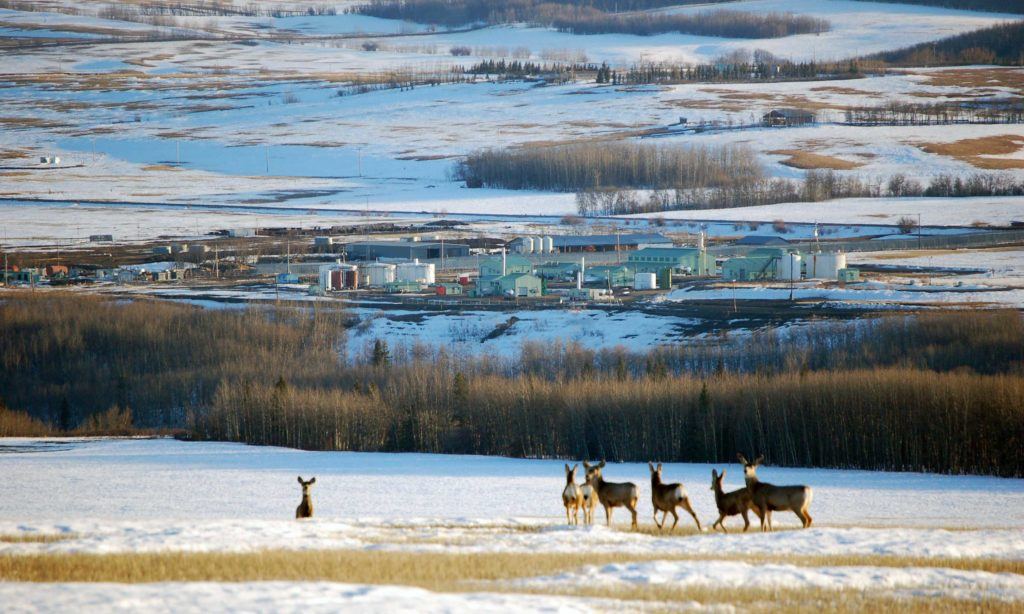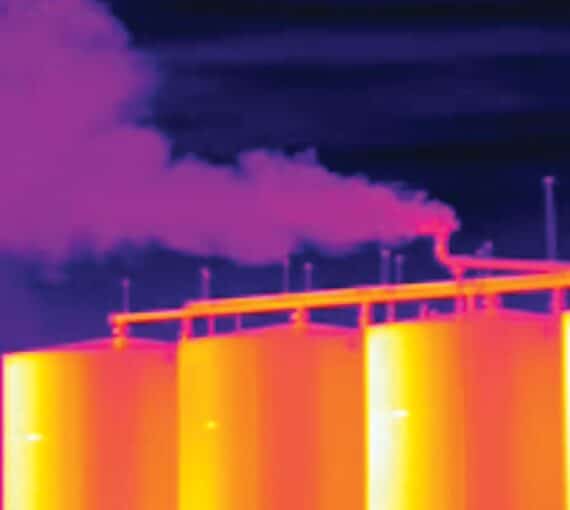When we talk about what governments can do to tackle climate change, the conversation often turns to the cost or complexity of broad policies that can have the biggest impact. Cap-and-trade programs, carbon taxes and the like are topics that can leave you with more questions than answers — if you don’t spend a lot of time thinking about them.
But what if I told you some affordable and focused but still important policies can go a long way toward reducing our impact on the Earth’s climate?
Decisions are being made now that will determine whether these practical policies move forward.
The opportunity in British Columbia
The B.C. government is drafting methane regulations that aim to reduce emissions of this extremely potent greenhouse gas. To help steer this process in the right direction, the David Suzuki Foundation published a report, “Regulatory Best Practices for Vented and Leaked Methane Emissions from Upstream Oil and Gas Operations.” It summarizes best practices for methane regulations from other jurisdictions.
Earlier this year, the federal government followed through on a commitment to reduce methane pollution across the country by 40 to 45 per cent by 2025 by releasing a set of regulations. Provinces can choose to adopt those regulations or create their own equivalent ones. So far, only Alberta has announced its own regulations. Those have been widely criticized for not even achieving half the necessary emissions cuts.
B.C. is in a position to set the standard for effective regulations. Strong leadership is especially important as the province is set to significantly increase fracking for natural gas to support recently announced liquefied natural gas export plans.
Fortunately, many of the actions needed to prevent methane (the main ingredient in natural gas) from being released into the atmosphere are simple, cheap and universally beneficial.
A win-win scenario
Peer-reviewed research published last year by the Foundation in partnership with St. Francis Xavier University found the volume of methane emissions B.C.’s oil and gas industry produces are at least 2.5 times greater than the provincial government has estimated. Many operations that the research looked at were intentionally releasing gas into the atmosphere or were burning it off rather than trying to capture it. Since these operations are releasing or destroying the very product they are trying to sell, taking action to capture it would help them make more money and offset the cost of any additional equipment or monitoring.
In addition to padding the pockets of industry, cutting methane emissions would benefit human health (methane is often released with other harmful compounds that damage air quality) and dramatically reduce the province’s contribution to climate change. Methane traps 84 times more heat in the atmosphere than carbon dioxide over a 20-year period and is responsible for roughly one quarter of the changes already observed to Earth’s climate.
In terms of climate action, it is rare for a policy to be so resoundingly win-win. Still, any regulations that would force industry to invest more money in a process that currently costs them very little will be met with resistance. That resistance led to Alberta’s regulations failing to meet their goal.
Learning from other jurisdictions
B.C. can avoid Alberta’s mistake and learn from places like Mexico and several U.S. states, including California and Colorado, that have introduced strong regulations while also building their oil and gas industries.
Best practices from these successful jurisdictions include:
- Requiring quarterly detection and repair of methane leaks.
- Offering incentives for operators to continuously monitor their facilities.
- Reducing and eliminating intentional methane venting into the atmosphere.
- Prioritizing capture of leaking gas, rather than destroying it through burning (i.e., flaring).
- Requiring equipment that does not “bleed” gas into the atmosphere.
- Requiring vapour collection and recovery.
- Requiring regular replacement of parts known to leak when worn.
Whether B.C. will seize this opportunity to take meaningful action on climate remains to be seen. If you want to encourage B.C.’s policy-makers to take these simple, cost-effective steps to address climate change, join us in sending them a message.
Our work
Always grounded in sound evidence, the David Suzuki Foundation empowers people to take action in their communities on the environmental challenges we collectively face.




